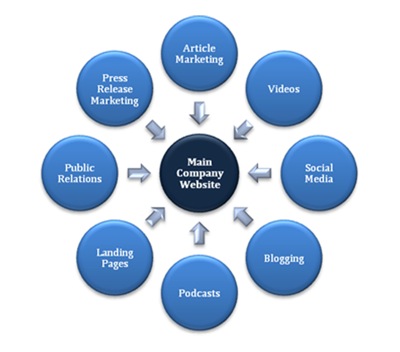Articles and News
CENTURION SPECIAL DIGITAL MARKETING SERIES: SEO, SEM, AND WHY THEY’RE IMPORTANT FOR LUXURY JEWELERS | July 28, 2011 (0 comments)

Las Vegas, NV--If you have ever been in a conversation with a website designer, he or she has probably started rattling off a string of acronyms that made you feel like you’ve landed in a foreign country. SEO and SEM probably were part of that conversation. Here I’ll try to demystify these terms and let you know why they are important to a luxury jeweler's business.
Before I delve into SEO and SEM, let’s lay the groundwork for some common digital marketing terms:
- Keywords– These are the terms that are most closely related to your business. Think, “If my perfect customer was going to do a Google search and find me, what term would they search for?” Prime keywords might be jewelry, jeweler, engagement rings, custom engagement rings, diamonds, etc.
- Geo-targeting – More importantly, as a brick-and-mortar store, you want to dominate your search by location. If you are in Farmington, NM, you aren’t trying to capture searchers from Rockport, TX. So in addition to your keywords, be sure to include surrounding towns and target area ZIP codes to geo-target your results. Using the example here, you’d include “Farmington, NM, Bloomfield, Kirtland, 87401, 87402,” etc., in addition to your prime keywords of “jewelry, jeweler, engagement rings,” etc.
- Backlinks– Backlinks are hyperlinks (the links people click on to visit your site) that come from other sites. You want your backlinks to have relevant keywords, called Anchor Text, so that the search engines know what you are about. For example, if you are using a sentence like “Click here for more information on engagement rings,” don’t link the words ‘click here’ to your site – link the words ‘engagement rings.’ Your site is about ‘engagement rings’ not ‘click here.’
- Page Rank– Page rank is a term that is used by Google to determine how important your site is in their eyes compared to all the other sites on the Internet. Google ranks you from 0-10, with 10 being the best. Most small business sites are in the 0-2 range, while sites like Facebook rank at 10.
Search Engine Optimization (SEO) is the process by which a company configures its website to have the appropriate keywords, META tags (hidden keywords and information to help give search engines quick information on the site), internal and external backlinks and content to have Google (and the other search engines) recognize the site as being relevant and important to certain keywords so that it rises to the top of the search results. This is a time-consuming process, as there is no specific formula for knowing exactly what the search engines are looking for and how they are going to recognize a company’s site – or even IF they are going to recognize the given site. However, it is a crucial part of an overall Internet marketing presence. The more backlinks you can have leading to your site from high page rank sites, the better it is for your SEO efforts. Basically, Google thinks that if a high page ranking site (like CNN.com) links to your site with Anchor Text of “engagement rings,” then your site must really have important information about “engagement rings” and when people search for that term you have a better chance of showing up in the results.
Search Engine Marketing (SEM), on the other hand, is the process of getting large quantities of targeted, keyword-rich, data in a variety of formats to a vast number of heavily-trafficked websites. This is done by posting items like press releases, articles, blog posts, podcasts and videos to targeted niche sites and social media sites such as Facebook, Twitter, and YouTube (see graphic). Search engines visit these sites on a minute-by-minute basis, adding the newly posted content to their search results. This continuous indexing of the sites results in a significantly higher opportunity for one’s information to be found when potential customers are searching for information regarding your topic.

A model of how digital marketing all fits together.
Search Engine Optimization vs. Search Engine Marketing. The best way to explain the difference between SEO and SEM is to think of a dart board. When doing SEO, you are asking the customer to hit the bull’s-eye – they need to type in just the right word, or combination of words, to find your single website directly.
SEM is equivalent to asking them to just hit the dartboard. By sending out vast amounts of data in a variety of formats to hundreds or thousands of websites with hundreds of millions of monthly visitors, the customer will find your information somewhere on the Internet. From that page, there will be link back to your page that they can follow, thus accomplishing the goal of having them arrive at your site.
SEO and SEM are not one-time events and they work hand-in-hand. The backlinks that are created via the SEM process help boost the site’s SEO. Effective SEO and SEM campaigns require long-term, steady data dissemination across a wide variety of formats and sites.They are both necessary for an integrated Internet marketing approach to reaching customers.
In our next installment, we’ll address some of these key components (such as META tags) in detail.
Jeffrey W. Arnold is a business consultant for Focus Business Management Institute an industry leader in retail jewelry consulting. Arnold has helped increase the profitability of numerous companies, ranging from start-ups to multi-billion-dollar entities. He now conducts social media and Internet marketing seminars for retail jewelers and leads the marketing initiatives for Focus. For more information on Focus and how they help increase profitability for independent jewelers, visit www.FocusBMI.com







